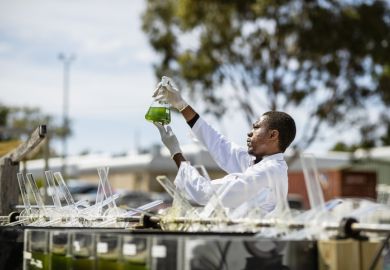Leiden University has moved to fire a professor over “long-term unacceptable and often transgressive behaviour”.
An independent investigation into the professor, who has not been named, and their partner, a former employee of the university, also revealed “perverse incentives” in research careers more broadly, Leiden said in a statement, with competition between academics leading to an unhealthy work culture that could cause them to “lose sight of boundaries”.
The investigative committee found that the professor and their partner had committed “abuse of power and manipulation”, resulting in a “culture of fear among staff who were largely dependent on these individuals”.
Prompted by multiple reports to the faculty dean of “socially unacceptable behaviour”, the investigation further concluded it was “plausible” that the individuals had “breached academic integrity” by “arranging access for themselves to data belonging to other staff” as well as monopolising access to data.
It was also “plausible”, the committee found, that the academics had “appropriated research material from third parties” without the necessary permission.
As a result, the university said, it had initiated proceedings to end the professor’s employment “as soon as possible”. If upheld in court, the academic will no longer be permitted to supervise PhD students or use the title of professor, while their partner will “no longer be welcome at the university”.
The investigation drew on the testimony of 19 informants, the university said, among them students, PhD candidates, postdocs and academics, while other witnesses included “current and former administrators, peers and experts”. The academics’ actions took place over several years, Leiden said.
Annetje Ottow, president of the university’s executive board, said: “This has seriously harmed many people, and that affects us deeply. Our first concern is for the informants. Given that the professor in question has held administrative posts at the faculty in the past, it took a lot of courage to come forward.
“The committee also thinks it important that we work towards ‘healing’ for those affected in the faculty and provide them with aftercare. So our first and strongest concern is to help them and to bring about further culture change in the faculty.
“In addition, we as the executive board must learn lessons from this report because, according to the committee, signs were also missed in the past at the management level,” Professor Ottow continued. “How can we be even more alert? How can we prevent such unacceptable behaviour from happening again? We are already doing a lot to create a safe work environment, but more will have to be done.”
According to Professor Ottow, the investigative committee’s report flagged “the great importance of acquiring research funding in competition with peers and the risks this entails”.
“In that context, an unhealthy system can arise of power and dependence. As an academic, you can lose sight of boundaries,” she said. “We need to look at that more broadly as well because it’s not just an issue in this faculty and at our institution.”
Register to continue
Why register?
- Registration is free and only takes a moment
- Once registered, you can read 3 articles a month
- Sign up for our newsletter
Subscribe
Or subscribe for unlimited access to:
- Unlimited access to news, views, insights & reviews
- Digital editions
- Digital access to THE’s university and college rankings analysis
Already registered or a current subscriber?










